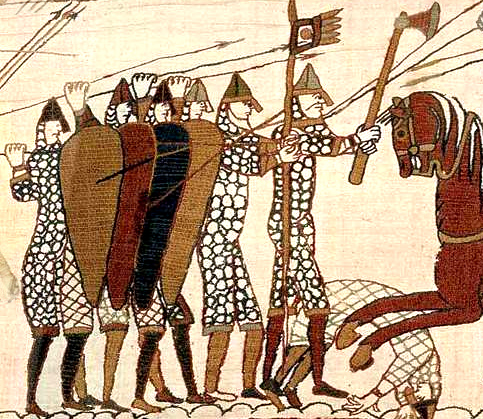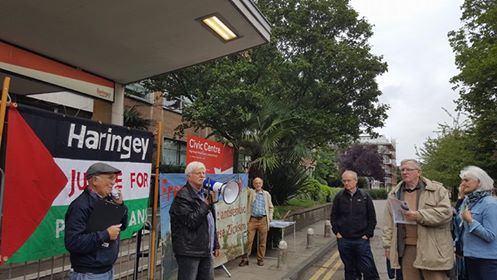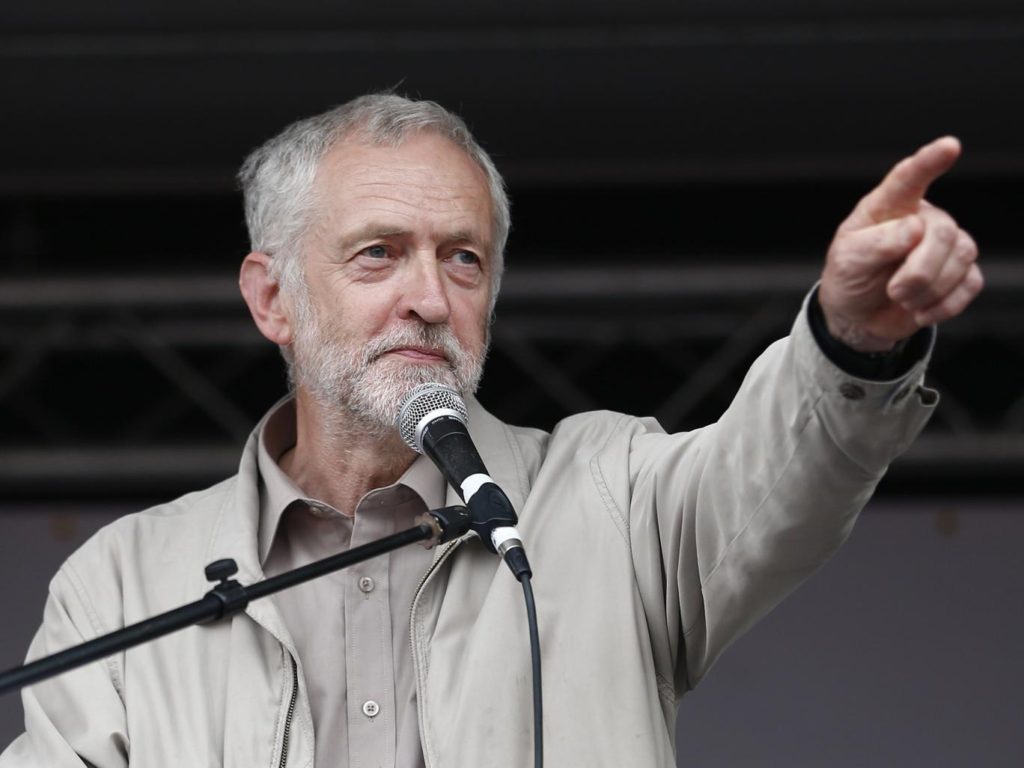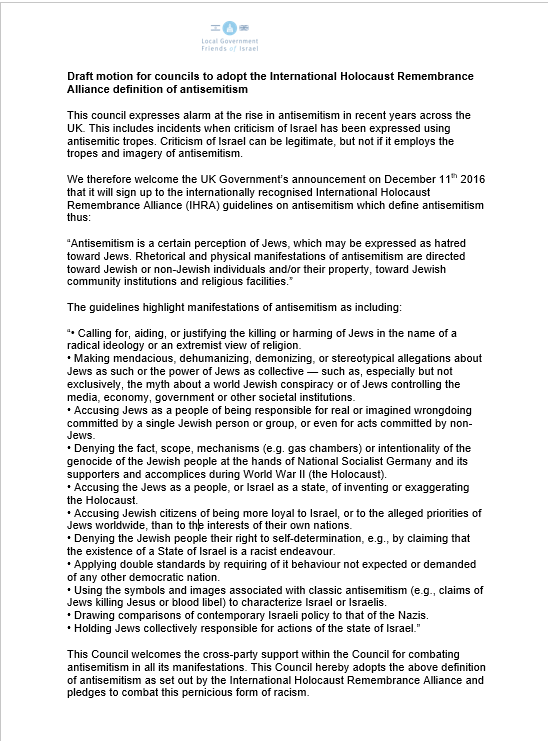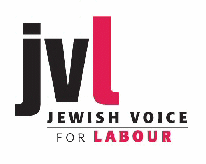
This is a copy of a letter sent by Jewish Voice for Labour to a council considering adopting the IHRA (mis)definition of antisemitism. We hope it may be of use to you if your local council is thinking of proceeding down this misguided path.
Dear councillor
As Jewish members of the Labour Party, and of the new Labour group, Jewish Voice for Labour, we are opposed to adoption of the International Holocaust Remembrance Alliance (IHRA) working definition of antisemitism due to be tabled before the council on Monday September 18.
We believe the IHRA document sows confusion in the fight against antisemitism and racism, which must be a key priority at this time of rising right-wing hate-mongering against ethnic and religious minorities. We also believe it poses a threat to freedom of expression, which it is a key duty of local authorities to protect.
We understand that councillors may feel obliged to endorse the motion out of a commendable desire to support and defend Jewish constituents, but in our opinion this would be misguided. The short definition of antisemitism contained in the proposed motion is, in our view, poorly worded and indefinite, but it is the rest of the document that seriously concerns us. The greater part of it is made up mainly of examples which do not relate to Jews at all, either individually or collectively. They relate to attitudes to the State of Israel.
We urge you to read the assessment by our friends in the Jewish Socialists’ Group, which can be found here. There is also a full assessment of the legal implications of the definition from Hugh Tomlinson QC here, as well as a scathing critique from (Jewish) former Appeal Court judge Sir Stephen Sedley in the London Review of Books here.
Antisemitism may sometimes be masked by a critical attitude to the State of Israel, that is true. The IHRA definition, though, seems designed not so much to catch speech or actions clearly motivated by hatred of Jews, as to defend the State of Israel against criticism of its violations of human rights, and to justify aspects of its foundation and constitution opposed by many Jews, both within and outside Israel. We know of many disturbing cases of the IHRA document being used to limit criticism of Israel and restrict campaigns in support of justice for Palestinians. The legal opinion from Hugh Tomlinson QC makes clear that public bodies using it in this way, including against the boycott movement, would be open to legal challenge for breaching their duty under the Human Rights Act to defend freedom of expression.
Councillors should be aware that the Labour Party has only adopted the short definition of antisemitism, which was included in the Race and Faith Manifesto during the 2017 general election. We are pleased that the party has not adopted the list of examples which follow the definition in the IHRA document. Nor should your council.
We appeal to you not to allow yourselves to be bounced into an ill-considered decision which will do nothing to oppose real antisemitism, and is likely to have negative consequences for the perception of the Council by many anti-racists and supporters of the rights of Palestinians.
We look forward to the opportunity to engage in productive discussion with council members about these important issues.
Naomi Wimborne-Idrissi
on behalf of
Jewish Voice for Labour

